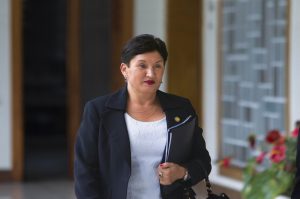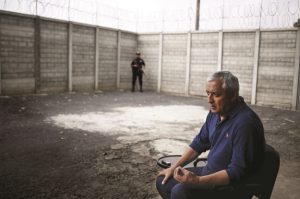
El increíble caso que demostró que la ofensiva de América Latina contra la corrupción va en serio
Read in English ¿Guatemala? ¿De verdad? Confieso: esa fue mi reacción en el momento en que Guatemala fue más lejos que cualquier otro país en la campaña contra la corrupción que ahora se propaga en América Latina. Una cosa es que Brasil o Chile, que tienen una historia más larga de instituciones fuertes, investiguen a … Read more
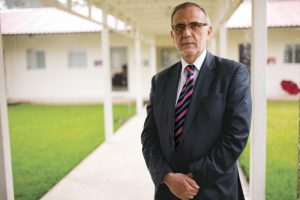
AQ Top 5 Corruption Busters: Iván Velásquez
This article is adapted from our 1st print issue of 2016. For an overview of our Top 5 Corruption Busters, click here. Visiting Iván Velásquez’s office is like entering an armed fortress. And no wonder. Even before leading the investigation that caused the resignation and imprisonment of a sitting Guatemalan president, Velásquez was a man … Read more
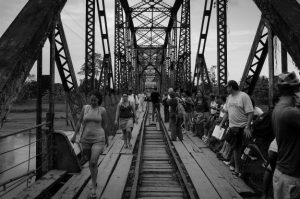
Central American Refugees Turn South as U.S. and Mexico Tighten Borders
In July 2014, at the peak of the Central American migration crisis in the U.S., officials in Mexico announced a plan to stem the tide of illegal entries on the country’s porous southern border with Guatemala. Dubbed Programa Frontera Sur, the new policy was partly responsible for a dramatic drop in the number of unaccompanied minors arriving … Read more
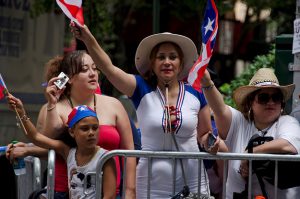
Puerto Ricans Are Leaving in Droves – And Stirring Up the 2016 U.S. Election
In November, Ben Carson became the fifth 2016 U.S. presidential candidate to make a campaign stop in Puerto Rico. Though Puerto Ricans are U.S. citizens, none of the island’s 3.5 million residents can vote in presidential elections. So why do both Democrat and Republican candidates continue to spend time and money visiting the territory? Demographics play a role. Campaigning in … Read more

Film Review: Dólares de Arena
This article is adapted from the Fall 2015 print edition of Americas Quarterly. To subscribe, please click here “I like your body, did you know?” Anne tells Noelí as they lie in bed with the sun shining through the windows. “How much does it cost?” The scene occurs toward the beginning of Sand Dollars, a … Read more
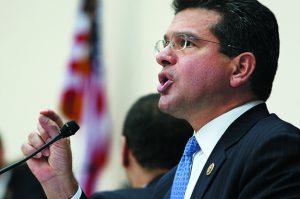
Puerto Rico Deserves Better from Washington
The United States consists of 50 states, the District of Columbia, and five U.S. territories — one of which is Puerto Rico. Individuals born in Puerto Rico are U.S. citizens, but island residents cannot vote for president or senators. The territory has a single delegate in the U.S. House of Representatives who can vote in … Read more
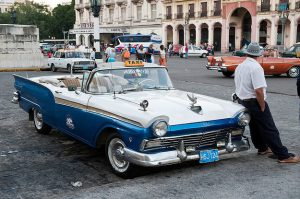
Cuba: Open for Business, But…
Now that U.S. and Cuban flags fly over reestablished embassies in Washington and Havana, the question on many minds is: Is Cuba open for business? The short answer: Yes, but with caveats. In leading four Americas Society/Council of the Americas business delegations to the island over the past three years to explore possible investment opportunities, … Read more
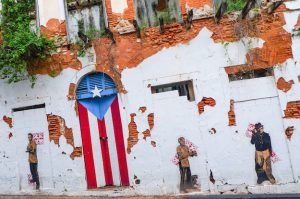
Puerto Rico’s Debt Debate Overlooks Human Costs
Imagine that you only have access to running water every three days. That’s not so bad, given the government’s plans in response to an extreme summer drought to shut down tap water completely for up to four days at a time. To add insult to injury, imagine you still have to pay for the tap water … Read more
Jamaica’s Pride Week Is A Positive Step for the Caribbean
Correction appended below On Saturday, LGBT rights organizations kicked off PRiDE JA 2015, Jamaica’s first ever gay pride week. For a country that TIME magazine once called “the most homophobic place on earth,” the event is testament to a slowly improving climate for an often persecuted LGBT community. “Despite the realities, Jamaica is changing slowly … Read more
UN Urges Renewed Effort to Combat Human Trafficking
Today, the UN Office of Drugs & Crime marked the first World Day Against Trafficking in Persons, an effort to raise awareness around the $150 billion global human trafficking industry. The event comes just days after the U.S. State Department drew criticism for its decision to remove Cuba from a list of countries that have … Read more
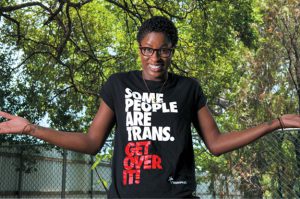
Latoya Nugent, Jamaica
Correction appended below A few years after publicly coming out as a lesbian, Latoya Nugent, 33, was defending the rights of lesbian, gay, bisexual, and transgender (LGBT) communities in Jamaica. In July 2013, she became the education and training manager at J-FLAG—the island’s leading LGBT rights organization. Those who knew her weren’t surprised. Though her … Read more

Gregoria Flores, United States
While many were surprised when tens of thousands of unaccompanied Central American children arrived at the U.S. southern border seeking asylum last year, it had a sadly familiar resonance for Gregoria Flores. “I know what it’s like to apply for asylum here when you have no one supporting you,” said Flores, 47, who arrived alone … Read more
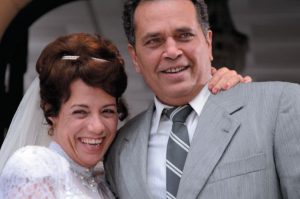
Film Review: Vestido de Novia
One warm Havana afternoon, Rosa Elena checks up on a transgender friend, Sissy, who is suffering from the complications of a black-market breast augmentation. Rosa’s husband, Ernesto, expresses his disapproval of Sissy, and she pleads with him to understand and sympathize with transgender people—a plea that is secretly for her as well. Later, Ernesto will … Read more
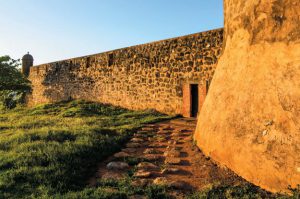
10 Things to Do: Puerto Plata, Dominican Republic
Walk in Columbus’ footsteps. Just outside the present-day port, Christopher Columbus founded La Isabela, one of the earliest European settlements in the Americas, in 1494. Visitors can see the ruins of the explorer’s first house and a reconstruction of El Templo de las Américas, where the first recorded Catholic mass in the New World was … Read more

